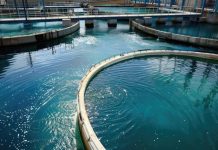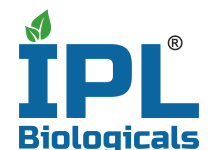EcoCircle, a pioneering platform focused on sustainable plastic recycling, is at the forefront of transforming the traditional linear plastics value chain into a dynamic circular economy. Through innovative methods, EcoCircle is making significant strides in supporting the United Nations Sustainable Development Goals (SDGs).
Recycling plastic waste plays a vital role in achieving several SDGs. Notably, it contributes to SDG 12, which emphasizes sustainable consumption and production patterns. While avoiding plastics is ideal, it is often impractical; thus, chemical recycling emerges as a crucial solution for fostering a more sustainable plastics economy amid the limitations of mechanical recycling.
Reducing plastic waste also aligns with SDGs 14 and 15, which focus on protecting and sustainably utilizing life on land and in water. By mitigating the risks associated with (micro)plastics, EcoCircle aims to positively impact public health and well-being, further advancing SDG 3. Additionally, active recycling reduces the need for fossil fuels in new plastic production, leading to lower CO2 emissions and supporting urgent climate action in line with SDG 13.
As per the press release, the EcoCircle platform focuses on developing targeted products and solutions, such as adsorbents and catalysts for advanced recycling processes, translating its commitment into practical actions that support the achievement of the SDGs.
Addressing Plastic Waste Challenges
Plastic pollution has become one of the most pressing environmental issues today. Since the 1950s, global demand for plastic products has soared and is expected to continue growing until 2050. This rise poses significant challenges in managing plastic waste and shifting from a throwaway culture to a circular economy. EcoCircle seeks to address this by examining the entire plastics value chain to discover sustainable solutions for closing the loop.
The platform emphasizes the development of innovative technologies and specialty chemicals, while promoting collaboration across the company. A key initiative includes the chemical recycling of plastic waste, which allows for continued recycling where mechanical processes fall short.
Increasing Recycling Rates
To improve the efficiency of mechanical recycling, it is crucial to understand its limitations. While mechanical recycling is effective for single-source thermoplastics like PE, PP, and PET, “hard-to-recycle” materials often end up in energy recovery or other end-of-life applications. This highlights the need for alternatives to handle these waste streams and complete the recycling loop.
Chemical recycling, utilizing thermo-chemical processes, breaks down waste materials into smaller components. Pyrolysis, which operates without oxygen, converts plastic waste into chemicals or valuable feedstock that can replace fossil fuels in new plastic production. Despite its advantages, pyrolysis faces challenges such as energy intensity and impurity thresholds. Catalytic pyrolysis aims to address these issues by reducing impurities and enhancing process conditions.
Enhancing Purification Processes
EcoCircle’s adsorbents and catalysts play a critical role in improving the quality of pyrolysis oils produced through catalytic pyrolysis. These adsorbents, particularly those that can be easily regenerated, help reduce impurities and enhance the value of pyrolysis oils.
Moreover, a strategic combination of complementary catalysts and adsorbents not only lowers costs but also upgrades pyrolysis oils to meet steam-cracker specifications. With the introduction of HDMax™ catalysts and Clarit™ adsorbents, EcoCircle offers its Adaptable PyOil upgrading technology, providing flexible and economically viable solutions to advance toward a circular plastics economy.
Customer Benefits
This innovative approach provides producers with greater flexibility, accommodating changes in feedstock and process configurations. The extensive product portfolio enables EcoCircle to offer tailored solutions to meet a variety of customer needs. Overall, producers can process larger volumes of higher-quality pyrolysis oil at reduced costs, enhancing their sustainability efforts.
EcoCircle continues to lead the charge in sustainable plastic recycling, positioning itself as a key player in the global effort to combat plastic pollution and promote a circular economy.
































